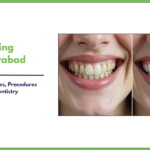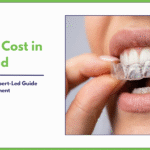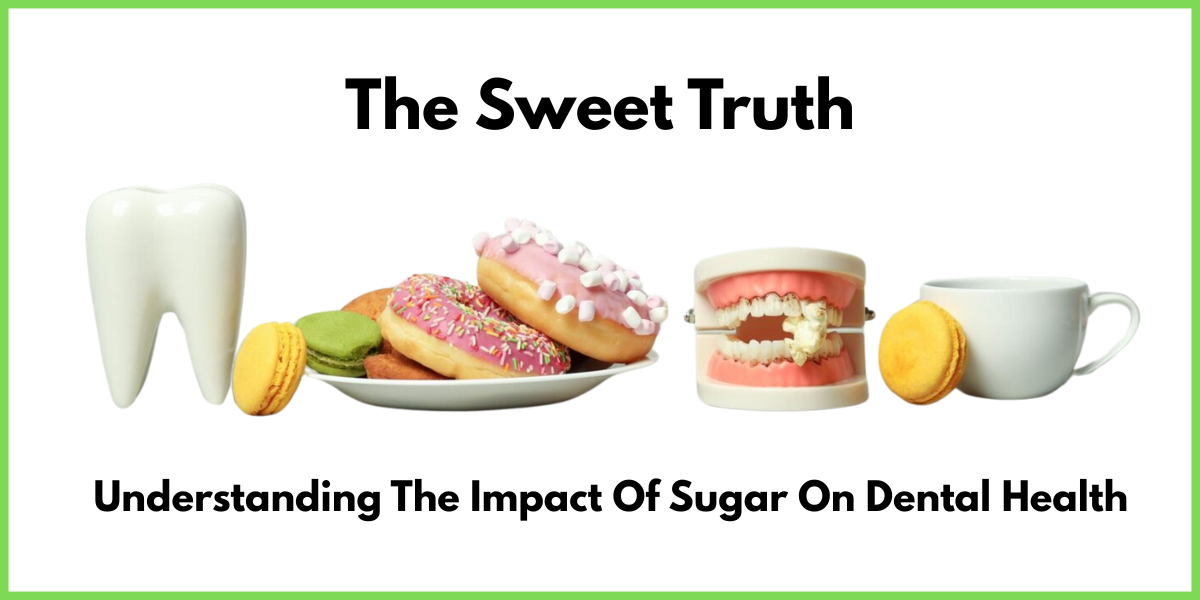The Sweet Truth: Understanding the Impact of Sugar on Dental Health
It’s a common belief that sugar is not good for your teeth, a fact people have observed for centuries. While enjoying a sweet treat is a common pleasure, its effects on dental health are less delightful. Understanding how sugar interacts with your teeth is the first step toward protecting your smile while still enjoying the foods you love.
At Ocimum Dentistry, we believe in empowering you with clear, trustworthy information so you can make the best choices for your well-being.
How Does Sugar Really Affect Your Dental Health?
When you eat sugar, you’re also feeding the harmful bacteria that live in your mouth. These bacteria digest the sugar and produce acids as a byproduct. This acid is the real culprit behind dental damage.
The Acid Attack: From Sugar to Cavities
The acid produced by bacteria attacks your tooth’s hard, protective outer layer, known as enamel. It strips the enamel of essential minerals, a process called demineralization. Your body fights back with saliva, which helps remineralizer the teeth by depositing calcium and phosphate back onto the surface.
However, frequent sugar consumption means your teeth are under constant acid attack. When demineralization happens faster than your body can remineralizer, the enamel weakens, and a cavity (a small hole) can form.
How is excessive sugar intake related to the development of dental caries?
Dental caries is the clinical name for tooth decay, and there is a direct link between a high-sugar diet and the development of cavities. The more sugar you eat, the more acid is produced in your mouth. This creates a persistently acidic environment where your saliva can’t keep up with repairs, significantly increasing your risk for tooth decay.
Warning Signs: How Sugar Can Harm Your Teeth and Gums
Your body often gives you clues that sugar might be causing problems. Here are a few common signs to watch for.
Why are my teeth sensitive to sugar?
If you feel a sharp, sudden pain when eating sweets, it’s a classic sign of tooth sensitivity. This often happens when the enamel has eroded, exposing the softer layer beneath it, called dentin. Dentin contains microscopic tubes that lead directly to the tooth’s nerve. When sugar comes into contact with exposed dentin, it can trigger that familiar jolt of pain.
Can too much sugar cause dry mouth?
While sugar doesn’t directly cause dry mouth, a diet high in sugar can be a contributing factor. For example, sugary alcoholic drinks can lead to dehydration and a dry mouth. Furthermore, high sugar intake is a risk factor for health conditions like diabetes, which often has dry mouth as a symptom.
The Connection Between Sugar and Bad Breath
Yes, sugar can lead to bad breath. The bacteria that feed on sugar release foul-smelling compounds, creating an environment that causes bad breath to develop.
Your Action Plan: How to Protect Your Teeth from Sugar
You don’t need to give up sugar entirely to have healthy teeth. Smart habits and moderation are key.
-
Drink plenty of water: Rinsing with water after a sugary snack helps wash away sugar particles.
-
Eat sweets with meals: Your mouth produces more saliva during a meal, which helps neutralize acids.
-
Limit sticky sweets: Candies that linger in your mouth give bacteria more time to produce acid.
-
Floss daily: Flossing removes plaque and sugar from between your teeth, where cavities often start.
-
Chew sugar-free gum: Gum with xylitol can stimulate saliva flow and reduce harmful bacteria.
What removes sugar from teeth and neutralizes acid?
Your saliva is your body’s natural defense, but you can help it along. Brushing your teeth physically removes sugar and plaque. Rinsing with water or an alcohol-free mouthwash also helps. For a deeper clean that removes stubborn plaque buildup, a professional teeth cleaning and whitening session is an excellent way to reset your oral health.
Timing is Everything: When to Brush After Sugar
If you eat a non-acidic sweet like a cookie, you can brush shortly after. However, if you have something both sugary and acidic like soda or citrus juice, it’s best to wait about an hour. The acid temporarily softens your enamel, and brushing too soon can cause damage.
Smarter Choices for a Healthier Smile
Making mindful swaps can significantly reduce sugar’s negative impact on your teeth.
How to Eat Fruit Without Damaging Your Teeth
Fruit is healthy, but it contains natural sugars.
-
Choose high-water fruits: Apples and pears help dilute sugar and stimulate saliva.
-
Eat acidic fruits with a meal: Enjoy citrus fruits like oranges as part of a larger meal to buffer the acid.
-
Rinse with water: After eating any fruit, a quick swish of water helps clear away sugar.
Healthier Substitutes for Sugar
If you want to reduce refined sugar, consider these alternatives:
-
Natural Sweeteners: Stevia and monk fruit are zero-calorie options.
-
Sugar Alcohols: Xylitol can actually help prevent cavities.
-
Fruit Purées: Unsweetened applesauce can replace sugar in many recipes.
Is Quitting Sugar Good for Your Teeth?
Yes, reducing your intake of added sugar is one of the best things you can do for your dental health. It dramatically lowers your risk of cavities, helps prevent gum disease, and can lead to fresher breath and less tooth sensitivity.
Take Control of Your Dental Health in Jubilee Hills
Managing your sugar intake is a great first step, but regular dental check-ups are just as important for maintaining a healthy smile. If you have concerns about sensitivity, cavities, or just want to ensure your teeth are in great shape, our team is here to help.
Find compassionate and clear guidance from our team of dentists in Jubilee Hills, Hyderabad. We believe in building trust through transparent and supportive care, helping you feel confident on your journey to optimal oral health





